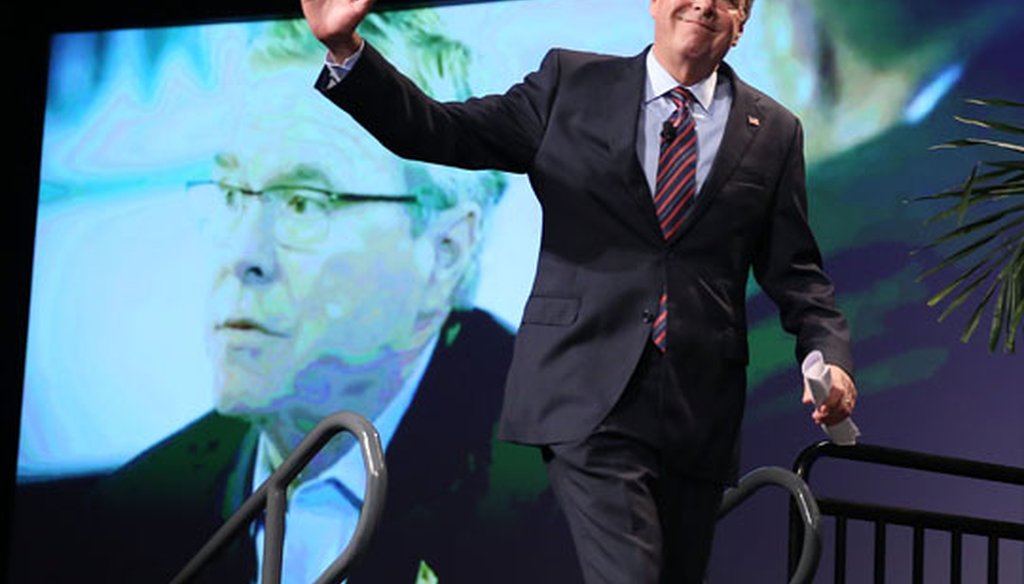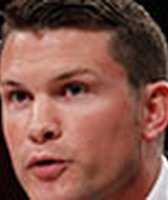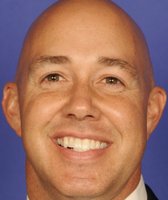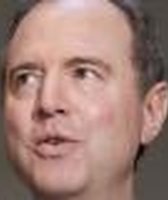Stand up for the facts!
Our only agenda is to publish the truth so you can be an informed participant in democracy.
We need your help.
I would like to contribute

Former Gov. Jeb Bush takes the stage for a speech at Gov. Rick Scott's Economic Growth Summit on June 2, 2015, in Orlando. (Getty)
After acting like a presidential candidate for six months, former Florida Gov. Jeb Bush will officially announce his bid on June 15 at a suburban campus of Miami Dade College.
In December, Bush announced on Facebook that he would explore a bid. Since then, Bush has played the role of an unofficial candidate by giving speeches across the country, granting interviews and raising millions of dollars for his Right to Rise Super PAC, which can accept unlimited donations.
PolitiFact Florida has fact-checked Jeb Bush 39 times on our Truth-O-Meter. We’ve rated 26 percent of his statements True, 31 percent Mostly True, 13 percent Half True, 23 percent Mostly False, 5 percent False and 3 percent Pants on Fire.
He joins a crowded field of GOP candidates, including his protégé Florida Sen. Marco Rubio.
Sign up for PolitiFact texts
Bush served as Florida governor from 1999 to 2007 and was in office while his brother George W. Bush was president. During his tenure, he saw Florida’s 2000 recount, the busy 2004-05 hurricane seasons, the feds seizing Elián González and the fight to keep Terri Schiavo connected to a feeding tube.
While in office, Bush implemented the state’s A through F school grading system, helped cut billions in taxes and slashed thousands of state jobs.
Despite some commentators now calling him a "moderate" for his views in favor of Common Core and changing immigration policies, he has touted his conservative credentials such as slashing spending, which earned him the nickname ‘Veto Corleone.’
Here’s a look at some of our fact-checks of claims by or about Bush.
Iraq
Bush’s differing or disparate comments about the Iraq war caught people’s attention in May. He initially said he would have invaded even "knowing what we know now," but later said he misheard the question. Days later, he said "I would not have engaged, I would have not gone into Iraq."
At a town hall event in Nevada later that month, Bush said the Obama administration was at fault for troubles in Iraq. "We had an agreement that the president could have signed that would have kept 10,000 troops" in Iraq, he said.
That’s not quite what happened. Obama inherited a timeline to exit Iraq from George W. Bush and followed it, but there was no agreement to leave a large force behind. The Obama White House considered 10,000 troops for a short time but ruled it out, suggesting a much smaller force. Negotiations with Iraq broke down, however, and there was no agreement that met conditions Washington wanted. We rated his claim Mostly False. (On June 10, Obama ordered the deployment of up to 450 more troops to Iraq in an effort to reverse major losses to the Islamic State.)
Education
Bush has a longtime interest in education. After he lost his first race for governor in 1994, Bush launched a charter school in Liberty City, a poor area of Miami-Dade County. (The school has since closed.) On the trail this year, he’s made several claims related to the achievement gap and about Florida’s Hispanic students.
As governor, one of Bush’s most controversial education decisions was his 1999 executive order implementing the One Florida plan, which banned racial preference in state school admissions. Bush has claimed the plan has actually boosted minority enrollment.
"I eliminated affirmative action by executive order -- trust me, there were a lot of people upset about this," Bush said at the Conservative Political Action Conference in February. "But through hard work, we ended up having a system where there were more African American and Hispanic kids attending our university system than prior to the system that was discriminatory."
Bush is exaggerating what the policy accomplished. The raw numbers of black and Hispanic students are up, but the percentage of black students in the state university system is down slightly since Bush’s order. The number of Hispanic students has gone up considerably, but that is partly because of a recent change in how students report ethnicity during the admissions process. There’s no hard evidence Bush’s One Florida program had much to do with the enrollment changes. Experts say demographics, graduation rates and state-sponsored scholarship money have had more influence.
We rated the statement Mostly False.
Immigration
Bush has been a leading Republican voice for changing immigration law for years. In a book he co-wrote in March 2013, Bush called for an overhaul to the immigration system, including an emphasis on work, rather than family reunification, for granting visas.
"Nearly 65 percent -- almost two-thirds -- of all new permanent residents obtained that status by virtue of their family status," he wrote.
That’s accurate. This number refers to a group known as legal permanent residents, or green card holders. In 2011, about 1 million people became legal permanent residents, and those who entered based on family ties accounted for about 65 percent. We rated Bush’s statement True. (This trend has continued -- the same statistic holds true for 2013.)
U.S. Rep. Debbie Wasserman Schultz, D-Florida, has accused Bush of flip-flopping on immigration over the years, though. "@JebBush a flip-flop-flip on immigration?" tweeted the Democratic National Committee chair from Florida in March 2013. "Wow. I fashioned you more of a baseball player than a gymnast. My bad. #notsurprisedatall."
Has Bush’s position changed over the years? We’ve documented several changes of position.
In 1994, when Bush ran against Democratic Gov. Lawton Chiles, the Miami Herald asked Bush what he would do about illegal immigration. "Start deporting people," he answered.
Bush lost that race and then won the seat four years later. While governor, he began to change his stance. He called it "just plain wrong" to charge illegal immigrants with a felony, and he opposed "penalizing the children of illegal immigrants" by denying them U.S. citizenship.
But after he left office, Bush clearly made a "flip" in favor of a path to citizenship. "You have to deal with this issue," Bush said in 2012. "You can’t ignore it. And so, either a path to citizenship, which I would support, and that does put me probably out of the mainstream of most conservatives; or a path to legalization, a path to residency of some kind."
He then "flopped" back somewhat with the release of the book Immigration Wars: Forging an American Solution, in which he explicitly opposed citizenship. "A grant of citizenship is an undeserving reward for conduct that we cannot afford to encourage," he wrote.
However, the book didn’t take a hardline deportation approach: Bush called on illegal immigrants to plead guilty, pay fines, and learn English and then become eligible to start the process to earn permanent legal residency. Because Bush has had different positions on immigration over the years, we rated Wasserman Schultz’s statement True.
Since the book came out, he has made additional comments about citizenship.
In March 2015, Bush told reporters that he could support a path to citizenship. "If you could get a consensus done, where you could have a bill done, and it was 15 years (to achieve citizenship) as the Senate Gang of Eight did, I’d be supportive of that," he said.
However, he’s also said some things contrary to that stance. In New Hampshire in April, Bush urged, "Deal with the folks who are here illegally in a rational, thoughtful way. My suggestion is earned legal status. Not earned citizenship, but earned legal status."
Obamacare
In 2013, Bush tweeted: "Why would our president close the embassy to the Vatican? Hopefully, it is not retribution for Catholic organizations opposing Obamacare."
As it turned out, Obama was not closing the embassy to the Vatican -- the United States was moving to a more secure location closer to the Vatican. In addition, the move didn’t originate with Obama. It has been in the works since George W. Bush was president. Finally, we found no evidence to support the idea that the relocation was related to battles over Obamacare. We gave Bush a Pants on Fire -- his only one.
Spot a claim by Jeb Bush or another political figure in need of fact-checking? Tweet us #PolitiFactThis or email us at florida@politifact.com
Our Sources
Former Gov. Jeb Bush’s Facebook, "A note from Jeb Bush," Dec. 16, 2014
Tampa Bay Times, "Jeb Bush, a moderate squish? Florida knows different," Dec. 7, 2014
Tampa Bay Times, "What you don’t know about Jeb Bush’s economic record," May 1, 2015
Miami Herald’s Naked Politics blog, "With ebook, Jeb Bush plans to define Jeb Bush before opponents, media do," Dec. 14, 2014
Miami Herald, "Jeb Bush leaves office with the same way he entered it: impeccable timing," (Accessed in Nexis) Dec. 17, 2006
Tampa Bay Times, "The Bush Legacy: Part 1," (Accessed in Nexis) Dec. 29, 2006
Associated Press, "US orders more troops in Iraq, but no overhaul of strategy," June 10, 2015
Interview, Juan Mendieta, Miami Dade College spokesman, June 4, 2015
PolitiFact Florida, "Newt Gingrich says Miami Dade College students speak 86 languages," Jan. 26, 2012
See individual fact-checks of claims by Jeb Bush for additional sources




































